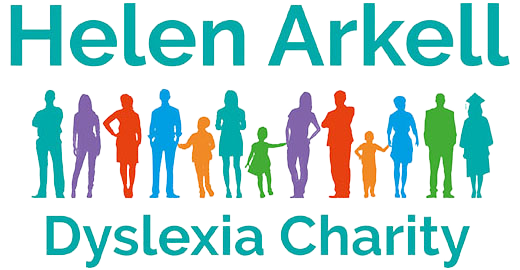Adults’ frequently asked questions

What can you help me with?
We can help you by providing advice and guidance from a specialist who has experience working with adults with dyslexia. You can arrange a meeting with a specialist, which will be an informal opportunity for you to discuss your situation. They will provide you with advice and suggest ways forwards.
Contact us to find out more and arrange a time to meet a specialist for a consultation.
Can you have mild or severe dyslexia?
Each adult that experiences dyslexia is unique and therefore his or her strengths and areas of difficulty will also be.
The context and environment for the individual will be unique too. These factors all make each individual’s experiences different, and this is why dyslexia can appear to be mild or severe.
For example, if he or she has a job that plays to strengths then the problems encountered will more than likely be minimised. He or she will also have developed strategies to help within this context.
If something changes, he or she may be promoted, or have a change in line manager or procedure then this will alter day to day activities. In this situation the dyslexic adult will need to adapt coping strategies, and this may trigger problems related to the areas of difficulty within his or her profile. This means that the dyslexia may appear more severe.
If you have recently experienced changes in your day-to-day activities and you think that you may need help to move forward, please contact us.
What is an assessment?
The purpose of a diagnostic assessment is to help you gain an understanding of your individual strengths and weaknesses. This will help you to understand the benefits of thinking differently. Recommendations will be made to help you move forwards.
Why would I need an assessment?
This might be to discover if you are dyslexic or may be required as an update if you were previously assessed when you were much younger. The assessment will help you to discover what your strengths and weaknesses are, and this will be very useful to you moving forwards.
How do I understand my assessment report?
Your report will provide useful information about your strengths and areas of difficulty, together with recommendations to help you move forwards. It is usually a detailed document that contains the results of your assessment, which will be presented using standardised scores together with a description of your test performance.
It is not unusual for an adult to need help to understand the report; this is because some of the language used is quite technical, which unfortunately, cannot be avoided. If you have been assessed at the Centre and would like help to understand the content, please contact us and we can arrange for you to talk to the assessor. She/he will be able to provide a short consultation over the phone or you can book a longer session to meet in person.
If the assessment has been carried out elsewhere and you would like help to understand your report, please contact us, we would be happy to arrange a consultation for you.
What do I do with my assessment report?
It would be in your best interests to provide a copy for your employer’s Human Resources Department. They should be able to help you access the support that you need, which might include technology or skills development.
It would also be beneficial for you to provide your line manager and any relevant colleagues with a copy of the recommended reasonable adjustments.
The decision as to whom you share the contents of your report with is yours and this means that you will need to give your permission before colleagues have access to the contents.
How do I get support at college?
You will need to refer yourself to the disability or dyslexia support department, which is usually located within Student Services. They will be able to offer you advice and support.
How do I get support at university?
You will need to refer yourself to the disability or dyslexia support department, which is usually located within Student Services. They will be able to offer you advice and support.
If you have not previously been assessed they will be able to advise you what to do next, which may involve referring you to someone for an assessment to be carried out. If you already have a diagnosis of dyslexia you will be advised to apply for a Disabled Students Allowance (DSA).
If you have already applied for a DSA and have had a needs assessment then your university will advise you how to access support.
If you need to arrange your own specialist tutor you will need to follow the advice on your needs assessment report.
How do I find a teacher/tutor?
At Helen Arkell we have highly trained specialists who can support you with study skills and workplace skills. Contact us to find out more
Can I get help for tests and exams?
Employees are often required to sit tests and exams at various stages throughout their careers. Recommendations for reasonable adjustments for tests/exams should have been made within your diagnostic assessment report.
You will need to provide this information for the awarding body, which you may have to do yourself or this might happen via your Human Resources Department. The final decision usually rests with the awarding body, but they will need to ensure that you are not placed at a substantial disadvantage, and they should take into account your normal way of working.
You may also find it beneficial to arrange some skill development sessions with a dyslexia specialist. This might include revision strategies and examination technique.
Can I get help with interviews?
Yes, you are able to request reasonable adjustments so that you are not placed at a substantial disadvantage.
The reasonable adjustments will vary depending on the type of interview and the assessment criteria/job specifications that you will need to meet. This means that the whilst the reasonable adjustments are designed to create a level playing field for you, they must not undermine the criteria being assessed or give you an advantage over other candidates.
Examples of the type of reasonable adjustments that might be requested:
- Prompt cards to remind you of previous experiences that you may wish to use as examples for competency-based interviews.
- Access in advance to any text that you might be required to use for example in a role-play scenario. This is designed to enable you to have extra time to read it.
- Written tests – use of a computer and extra time.
- Lengthy interviews with various activities all taking place in one day eg written test, role play, group activity, presentation and interview. Suitable rest breaks between each activity, which may be longer than that originally offered.
What help can you get in the workplace?
This will vary depending on your needs but might include any of the following: workplace skills development, use of technology, recommendations for reasonable adjustments, and help and support when talking to line managers and colleagues. It may also include recommending that you have an assessment, an update or adult coaching.
What if I can’t afford help? Is there funding?
Funding is sometimes available. Access to Work is one option you may wish to consider.
If you need help or advice about any of the above, please contact us.




